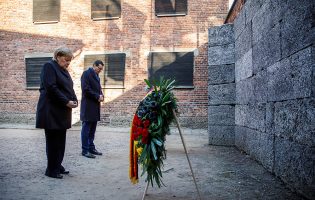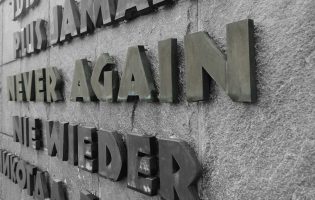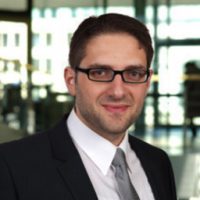
What is Angela Merkel’s Legacy for German Memory Culture?
AGI Asks: How has Angela Merkel contributed to Germany’s culture of remembrance and influenced memory politics? Lily Gardner Feldman AGI Senior Fellow All German post-war chancellors have been committed to …

Us versus Them: The Steady Narrative of “Othering” in Historical and Contemporary Debates in Germany and the U.S.
Germany and the United States today face rising anti-Semitism and anti-Muslim sentiment as nativist politics on both sides of the Atlantic gain not only traction, but also legitimacy. From the …

Comparing the Experiences of Discrimination Faced by Jews in Early 20th Century Germany and by Muslims in Contemporary Germany
As a DAAD/AGI Research Fellow from October to December 2018, Dr. Ufuk Topkara conducted research on a project that emerges out of the interconnected strands of intellectual inquiry: comparing the …

Never Again!
A Historical Survey of Anti-Semitism in Germany between 1933 and 1935 and Implications for Contemporary Debates When an anti-Semitic loner killed 11 members of a Jewish congregation in Pittsburgh in …
Ufuk Topkara, DAAD/AGI Research Fellow
AGI is pleased to welcome Ufuk Topkara as a DAAD/AGI Research Fellow from October to December 2018. He has been active in promoting inter-religious dialogue since 2005 as an expert on …
Islam in Germany Revisited: The Circumcision Debate
The notorious silence of the relatively uneventful summer this year in Germany was suddenly disrupted by a heated debate regarding the abolishment of circumcision—ignited by a May 2012 court ruling. …
Challenging Times: Muslims and their Role in Shaping the Future of Germany
The Muslim community is at the forefront of public debate, not only as a result of the post 9/11 era, but more so because of questions related to Islam and its convergences with a democratic, pluralistic society. Whereas some Muslims ignored these inquiries into their faith for too long, others sincerely tried to engage in discussion.




